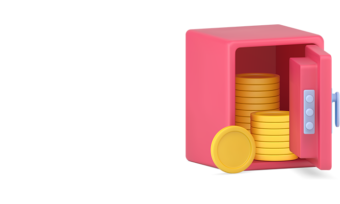It’s all too easy to spend a couple of extra bucks here and there and, before you know it, blow the week’s paycheck. Writing a budget helps you make sense of your dollars and ensures you’ve money on hand for the essentials.
Do I need a budget?
Yes, having a budget is highly recommended for almost everyone, regardless of their financial situation. A budget is a fundamental tool for managing finances effectively, and achieving financial goals. Here are reasons why you should consider creating a budget:
- Financial Awareness: A budget provides a clear picture of your income and expenses, allowing you to understand where your money is coming from and where it’s going. This awareness is crucial for making informed financial decisions and achieving financial security.
- Expense Control: With a budget, you can identify unnecessary or excessive expenses and find ways to cut back on non-essential spending. This helps you exercise better control over your money and avoid overspending.
- Financial Goals: Budgeting enables you to set and work towards financial goals. Whether you want to save for a vacation, pay off debt, build an emergency fund, or invest for the future, a budget helps you allocate funds toward these objectives.
- Debt Management: If you have debts, a budget can be instrumental in managing and reducing them. By allocating specific amounts for debt repayment, you can make steady progress toward becoming debt-free.
- Emergency Preparedness: Budgeting allows you to create and maintain an emergency fund. Having savings set aside for unexpected expenses provides a safety net and protects you from going into debt during emergencies.
How do I write a budget?
Writing a budget sounds simple enough, but it can be easy to miss out small expenses here and there. Here’s a step-by-step guide to make sure you cover everything in your budget.
- Gather financial information: Collect all the necessary financial documents, such as pay stubs, bank statements, bills, and any other records of income and expenses.
- Calculate your income: List all sources of income, including salary, freelance work, rental income, or any other money you receive regularly. Add up the total monthly income.
- List your expenses: Categorise your expenses into fixed and variable categories. Fixed expenses are those that stay relatively constant each month (e.g. rent/mortgage, insurance, loan payments). Variable expenses are more flexible and can fluctuate month-to-month (e.g., groceries, entertainment, clothing). If you’re unsure about your spending habits, keep track of all your expenses for a month or two to get a clear picture of where your money goes.
- Set financial goals: Determine your short-term and long-term financial goals. These could include building an emergency fund, paying off debts, saving for a vacation, or investing for retirement.
- Allocate your income: Start by allocating money to cover your essential expenses. Then, distribute the remaining funds to meet your financial goals and non-essential expenses. It’s crucial to prioritise necessities and savings before discretionary spending. Remember to be realistic. Don’t underestimate your expenses or overestimate your income.
- Pay off debt: If you have debt, prioritise paying it off as soon as possible. High-interest debts, like credit card debt, can accumulate quickly and hinder your financial progress.
- Emergency fund: Consider including an emergency fund category in your budget to set aside money for unexpected expenses. Ideally, aim to have enough savings to cover three to six months’ worth of living expenses.
- Review and adjust: Regularly review your budget to track your progress and make adjustments if needed. Life circumstances change, so your budget needs to be flexible.
Remember to be disciplined and stick to your budget as closely as possible. It may take time to develop good financial habits, but consistency is key to achieving your financial goals.
How to simplify money management
If you’re still not sure where to begin, you might want to consider using a budgeting app or Canstar’s budget planner calculator.
As well as making a budget, it’s important to choose financial products that suit your needs and lifestyle. To help you narrow down your options, Canstar compares savings providers and accounts.
Compare savings accounts with Canstar
About the author of this page
This report was written by Canstar Content Producer, Caitlin Bingham. Caitlin is an experienced writer whose passion for creativity led her to study communication and journalism. She began her career freelancing as a content writer, before joining the Canstar team.
Enjoy reading this article?
You can like us on Facebook and get social, or sign up to receive more news like this straight to your inbox.
By subscribing you agree to the Canstar Privacy Policy




Share this article